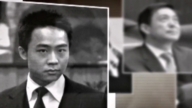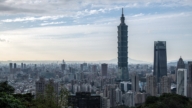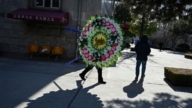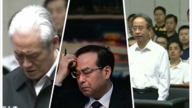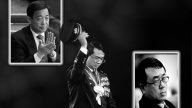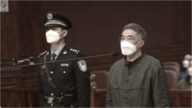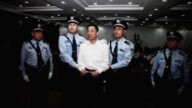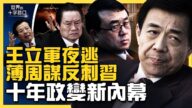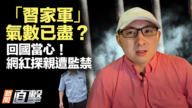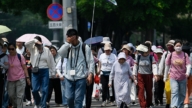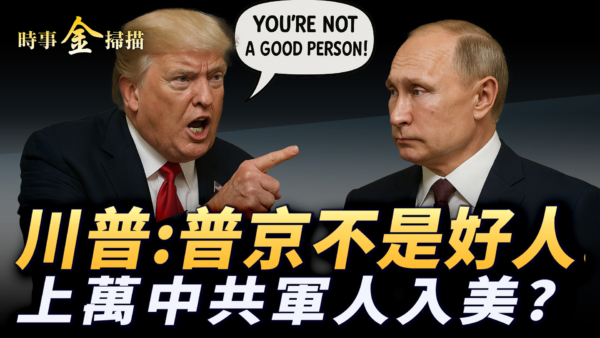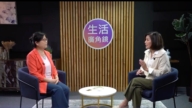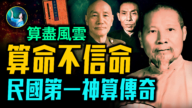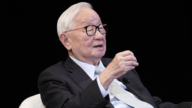【新唐人2012年4月2日讯】自重庆副市长、前重庆公安局局长王立军2月6号进入美国驻成都总领事馆至今,将近两个月过去了,人们对王立军事件仍在拼图的阶段,美、中都不提王立军进入美领馆的原因。日前,美国众议员外交委员会要求美国国务院对此作出说明。
美国众议员外交委员会主席罗斯雷提南28号在一个关于“中国威胁”的听证会上,批评奥巴马政府为了使中共国家副主席习近平访美顺利,竭尽所能,甚至可能为此拒绝中共官员王立军寻求政治庇护。
罗斯雷提南表示,“奥巴马政府可能拒绝了一个寻求庇护者,这个人有可能是一个具有高价值的情报来源,这个过程中有许多问题需要答案,我已经向国务院提出要求,现在正等他们就这件事给我详细答复。”
在此之前,罗斯雷提南在习近平访美前3天,曾致函国务卿希拉里(Hillary Clinton),询问王立军是否曾在总领事馆填了申请表格、要求政治庇护,遭到白宫拒绝。
后来,美国国会众议院“外交事务委员会监督和调查小组委员会”宣布,自3月19号展开针对王立军案的调查,并表示,将来有可能为此案举行听证会。
华府人权律师叶甯表示,白宫拒绝王立军政治庇护的做法从情报价值来说,是一项损失。
叶甯:“这样的做法从情报价值来说,对美国国家利益、国家战略意义当然是损失惨重。但是问题不在这,这么早的把王立军扔出去,还可能放松了一次中国得到民主改革的机会。”
叶甯认为,如果王立军在美领馆多呆几天,中国后面的形式大不一样,它是促使中共内部分裂的最好机会,他说,这是很可惜的。而美国的做法与中共把脱离朝鲜者送还给朝鲜是一样的。
叶宁:“现在把王立军在24小时之内,没有经过甄别,就迅速送给中共当局的做法,是显示了美国政府完全无视、悍然践踏国际公法,完全无视联合国公约。”
同时,“英国广播公司BBC”28号证实,王立军曾接洽英领馆会面,但最后没有去,而是去了成都美领馆。美国国务院情报官员谭慎格披露,王立军准备去英领馆,可能和英国商人海伍德(Neil Heywood)去年11月在重庆离奇死亡有关。
叶甯表示,薄熙来出事以后,中共出台了三条“反人类”措施:一是,人大两会通过了“恶法”把秘密失踪合法化﹔二,强迫律师效忠中共,不签订卖身契就不能得到律师执照﹔还有“网路实名制”。这些措施,加上温家宝有关改革的言论,迷惑了很多人。
叶宁:“迫害法轮大法学员的罪行,大部分是在中共劳教制度下的集中营里面完成的,中共长期关着75万到100万的,没有经过任何法律程序审判的劳教营的囚徒,而《劳动教养暂行条例》一暂行就暂行了60多年,就是国务院出台的。作为国务院总理温家宝做了多少事情,来实实在在的推行普世价值和改革?”
不过,“王立军事件”已经引发了中共内部的混乱。
中共党报《人民日报》29号发表文章,呼吁“与党中央保持高度一致”,在大是大非上头脑清醒,在路线原则上立场坚定。
《美国之音》援引中国人民大学教授周孝正的话说,粉碎“四人帮”以后中共不再提路线斗争,可是现在突然又说要“在路线原则上立场坚定”,潜台词就是中央有两种意见,高层出现了派别,要不哪来的路线斗争?
《纽约时报》30号报导,中共中央政治局九常委讨论关于免去薄熙来重庆市委书记职务时,主管政法的常委周永康,罕见的投下了反对票。
那么,中共内部所指的路线斗争是谁,就不难理解了。
采访/秦雪 编辑/宋风 后制/萧宇
—————-
Reveal Truth of Wang’s Case
Wang Lijun, Vice Mayor of Chongqing and former director
of Chongqing Public Security Bureau entered the U.S.
Consulate General in Chengdu on February 6.
Two months later, people still are discussing
the Wang Lijun event.
The United States or Chinese authorities will not mention
the reasons for Wang entering the U.S. Consulate.
U.S. House of Representatives Foreign Relations Committee
recently asked the U.S. Department of State to clarify it.
On March 28, there was a hearing about the ‘China threat’.
U.S. House of Representatives Foreign Affairs Committee
Chairman Ros-Lehtinen criticized the Obama administration.
They tried their best to make Chinese Vice President
Xi Jinping’s visit successful.
They may therefore have refused Wang Lijun
to seek political asylum.
Chairman Ros-Lehtinen: “The Obama administration
is unlikely to reject an asylum-seeker, who may be
a high-value intelligence source.
In this process, there are many questions
needing answers.
I have made a request to the Department of State,
and am now waiting a detailed reply.”
Chairman Ros-Lehtinen had written to Secretary of State
Hillary Clinton three days before Xi Jinping’s visit.
She asked whether Wang Lijun filed application forms for
political asylum at the Consulate General.
The White House refused to reply.
Following this, Oversight and Investigations Subcommittee
of the Foreign Affairs Committee of the U.S. House
of Representatives made an announcement.
They were to commence investigation against the Wang Lijun
Case on March 19.
They may hold a hearing for the case in the future.
Ye Ning, a human rights lawyer in Washington DC,
said it is a loss that the White House refused Wang.
Wang had a lot of intelligence value.
Ye Ning: “On the intelligence value, this practice caused
heavy losses to U.S. national interests and national strategic
significance.
Moreover, abandoning Wang so early, may lose an opportunity
for democratic reform in China."
Ye said that if Wang Lijun stayed in the Consulate for a few
more days, it could cause quite a different situation in China.
It is the best opportunity to promote division within
the Chinese Communist Party (CCP).
Ye said this is a great pity.
The practice of US is the same as Communist China
returning refugees to N. Korea.
Ye Ning: “To return Wang Lijun to the Chinese authorities
within 24 hours, without screening, shows the U.S.
government’s complete disregard and flagrant violations
of international public law.
It shows a complete disregard of United Nations Convention."
Meanwhile, the British Broadcasting Corporation (BBC)
confirmed Wang Lijun had approached the British Council
for a meeting.
It did not go, and went to the U.S. Consulate
in Chengdu instead.
According to the U.S. Department of State intelligence official,
Wang Lijun got ready to go to the British Consulate.
It might be related to the mysterious death of British
businessmen Neil Heywood last November in Chongqing.
Ye Ning said that after Bo’s accident, the CCP has introduced
three ‘anti-humanity’ measures.
Firstly, the two sessions of the National People’s Congress
(NPC) passed a law allowing secretive detention to be legal.
Secondly, it allows lawyers to be forced to devote to the CCP.
They cannot get a license if they refuse to sign
a special statement.
Thirdly, is the ‘Internet real-name system’.
These measures, together with Wen Jiabao’s remarks
on reform, confused many people.
Ye Ning: “Persecution of Falun Gong practitioners mainly
happens in concentration camps under forced labor system.
The CCP has detained about 750,000 people long term
in forced labor camps without any legal procedure.
“Provisional Regulations on Re-education through Forced
Labor" was conducted for over 60 years.
This was promulgated by the State Council.
What did Premier Wen Jiabao do to implement
universal values and reform?”
However, the Wang event has led to chaos within the CCP.
The CCP newspaper, People’s Daily, published an article
on Mar 29,
It called for “Being highly consistent with the CCP Central
Committee”.
Being clear-headed in big issues and having
a firm stand on policies.
Voice of America quoted Professor Zhou Xiaozheng
in People’s University of China.
It said the CCP had no longer mentioned struggle between
two principles after the smashing of the “Gang of Four".
Now it suddenly said to “Stand firm on the principle".
The subtext is that there are two views in the central CCP.
They have different groups in the central CCP, or else why
is there struggle between two principles?
The New York Times reported on the issue on the 30th.
The nine Standing Committee members of the CCP
Political Bureau in Central Committee discussed whether
to remove duties of Bo Xilai as Party Secretary of Chongqing.
Zhou Yongkang who is in charge of Political Committee,
cast a negative vote, which was rare.
Principle struggle within the CCP
is not difficult to understand.



